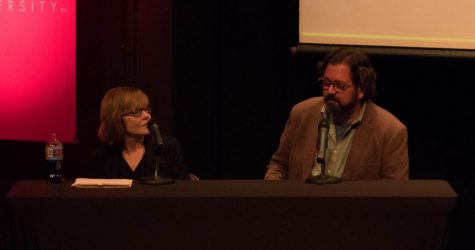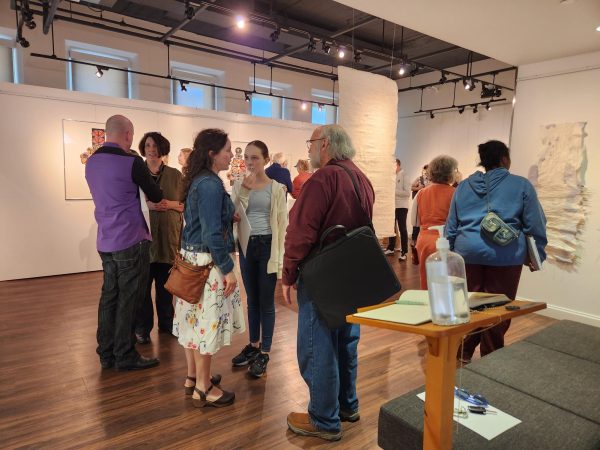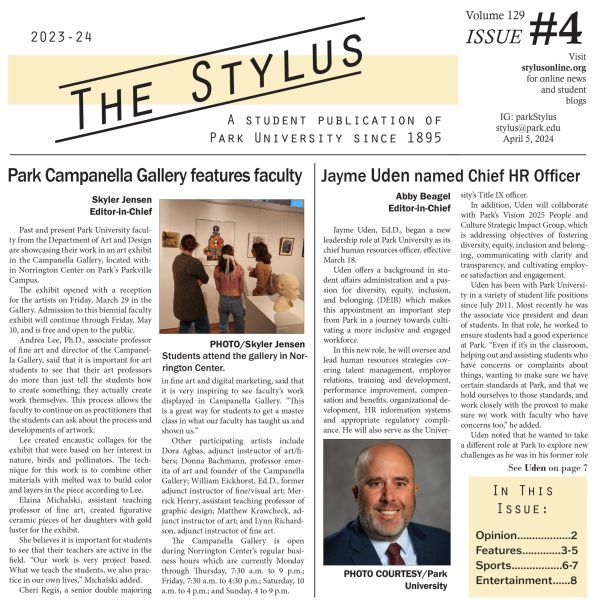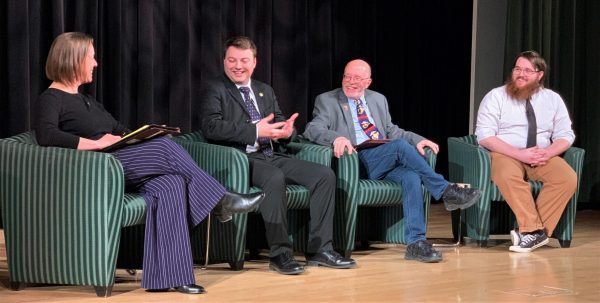Poverty INC screening and panel

Park University held a screening of the 2014 documentary Poverty INC, directed by Michael Matheson Miller in Alumni Hall. After the screening professors Dr. Brian Cowley and Dr. Julie Creek took the stage to hold a panel and answered questions from the audience.
“It’s not going to be a single lightning bolt. It’s not going to happen in a boardroom over here,” Cowley said. Cowley is a professor of psychology. Cowley was responding to a question from the audience asking what can we do for countries that are greatly suffering from poverty.
Poverty INC is a documentary that shows that no matter how well intentioned help from prosperous countries like the United States is, it isn’t working in pulling people out of poverty. The documentary argues that the paternalistic approach of foreign aid can make countries and their poorest citizens chained to loans that their governments receive. The paternalism model just doesn’t work.
“If someone treats me like I’m not good enough, that’s going to change how you think about yourself,” Cowley said. The poor are seen as the “other” and the “objects of charity”. They’re dehumanized. Made to seem like they can’t fix their problems on their own. They need a paternalistic helping hand to move themselves out of poverty.
“It’s hard to rise out of poverty when you’re getting so much money for being poor,” Cowley said. The way aid is given to countries can strip the small businesses of their clientele. Pumping in free stuff causes havoc on the local economy.
An example of this is Toms Shoes. When Toms distributes free shoes to countries it feels needs them, that takes business away from a cobbler who’s only source of income is selling shoes that they’ve made by hand. People will never choose shoes that cost money over free shoes.
“Education is key to rising out of poverty,” Creek said. “It’s not just based on business. Who knows better of what they need than the people who live there?” Providing education and connections to those in poverty could go a long way to improving the situation. A large part of being in poverty is being kept from opportunities.
“I’ll challenge the movie and say that some of that aid keeps people alive. What’s the better system? They never presented a solution that has worked,” said Park University’s President Greg Gunderson, who was in the audience for the movie and panel.
“I have to worry when my boss is asking questions. But I don’t think we can fix it ourselves. They have to fix it their way,” Cowley responded. “I don’t think there’s a single answer,” Creek added.
Your donation will support the student journalists of Park University. Your contribution will allow us to cover our annual website hosting costs, freeing up other funds for equipment, printing and training.








